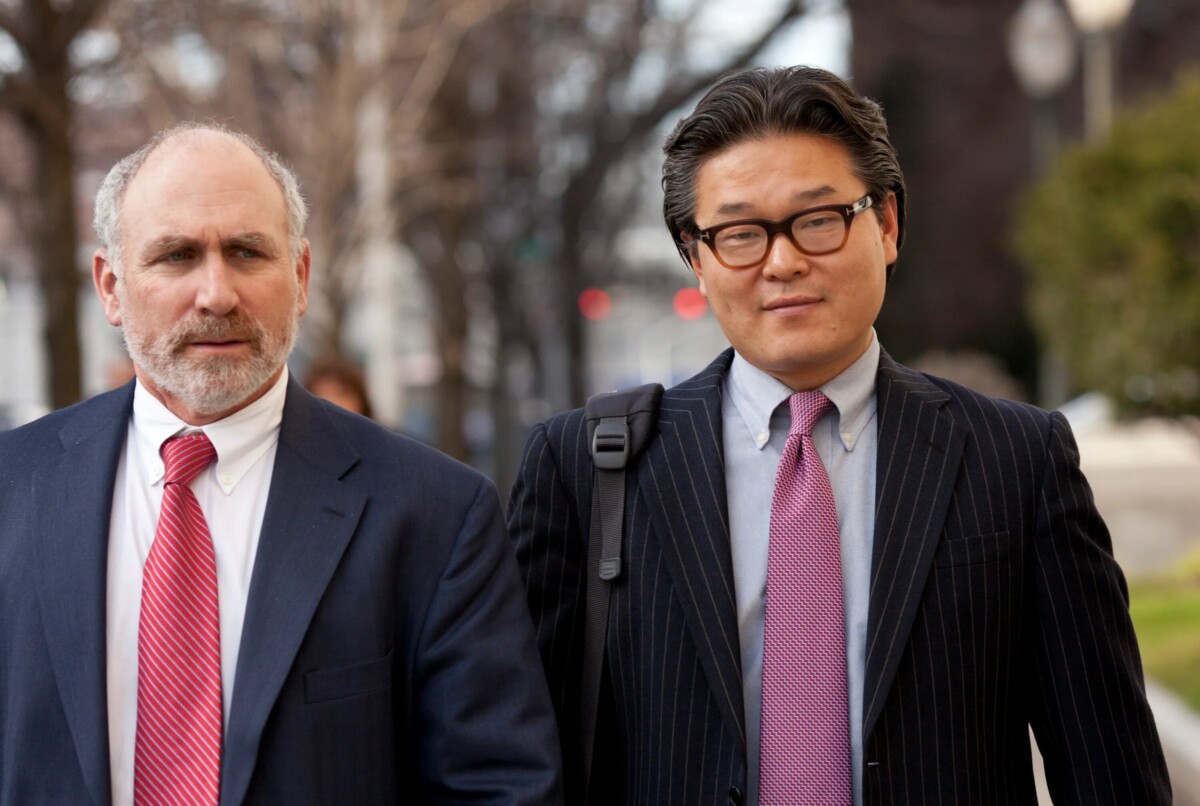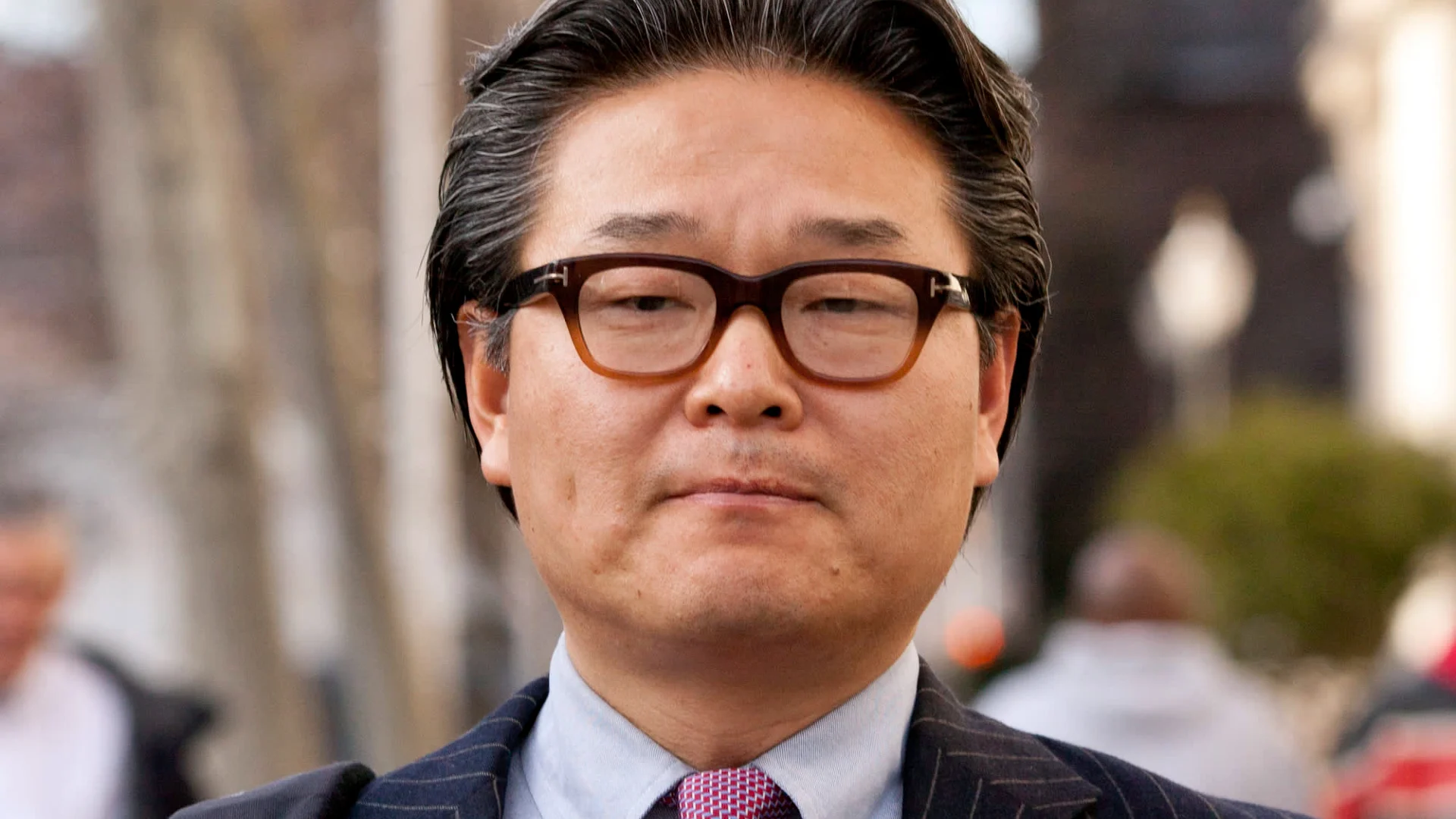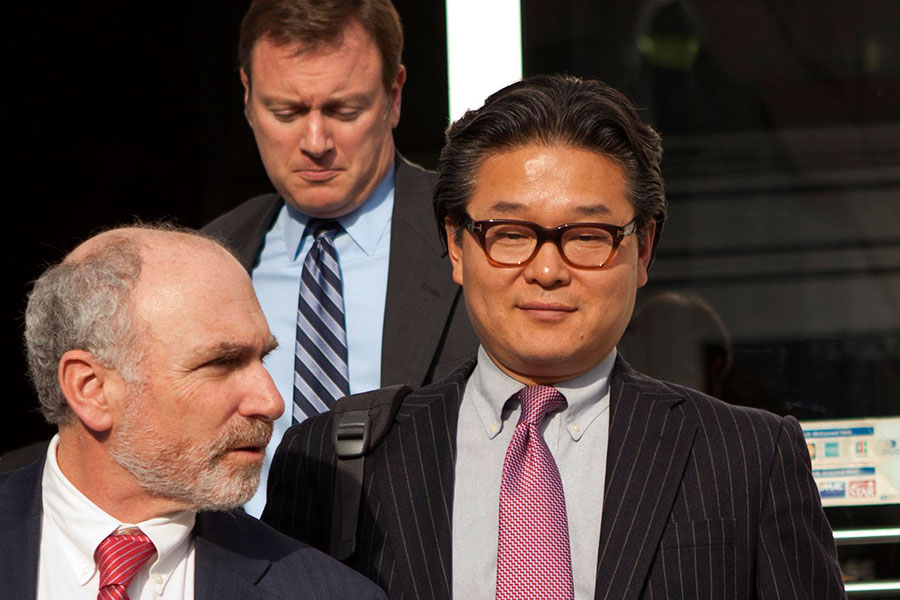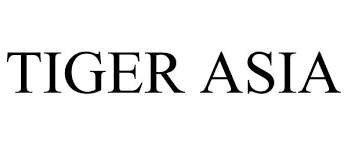Introduction
Sung Kook “Bill” Hwang and Tiger Asia Management, a once-prominent Asia-focused hedge fund, are entangled in a network of criminal financial operations that the Tiger Asia insider trading case reveals. Jointly, the SEC and the US Attorney’s Office for the District of New Jersey brought charges of wire fraud, market manipulation, and insider trading to light through their legal efforts. The case not only examines the activities of prominent figures in the hedge fund sector, but it also clarifies the intricacies and ramifications of the law as they pertain to fraudulent financial market tactics.
Claims Of Insider Trading
Tiger Asia Management Was Founded And Is Managed By Hwang
Sung Kook “Bill” Hwang, the founder and portfolio manager of Tiger Asia Management, actively participated in the alleged insider trading. Hwang was the driving force behind the hedge fund and played a crucial part in making decisions, managing the portfolio, and launching strategic initiatives. He was able to influence trading methods and gain access to confidential information due to his position.
Using Confidential Information To Short Three Chinese Bank Stocks
The SEC charged Hwang with insider trading, alleging that he short sold three stocks of Chinese banks. Rumor has it that private placement offerings provided the basis for the short sales. Tiger Asia Management was able to benefit from the expected fall in the stock prices of the targeted banks because Hwang, in breach of contractual and ethical standards, utilized nonpublic information to get a trading advantage.
Using Discounted Private Placement Shares To Cover Short Positions
Hwang and his consulting companies engaged in a complex strategy to hedge their short positions by purchasing shares through a private placement at a steep discount to market pricing. The SEC stated that the attempt was made to maximize profits from the stolen data . Another aspect that draws attention to the purported use of proprietary information for financial benefit is the covering of short positions with discounted private placement shares.
Attempts To Manipulate Stocks In Chinese Banks That Are Traded Publicly
Hwang attempted to manipulate the price of a publicly traded Chinese bank stock, as stated in the SEC’s complaint. A large number of equities controlled by Hwang’s hedge funds were the targets of this manipulation. Hwang planned to increase the value of his short holdings by lowering stock prices through a series of strategically placed lost trades. Hedge funds’ short positions saw their earnings inflated unnaturally due to this well-planned operation that aimed to fool the market.
Eschewing Winning Trades In Favor Of Shorting Stocks And Decreasing Their Prices
In an effort to artificially lower the closing prices of publicly listed Chinese bank equities on the Hong Kong Stock Exchange at the end of each month, Hwang and head trader Raymond Y.H. Park arranged a string of losing trades. We set out to make it so that the hedge funds could cash in on their short bets. This strategy intended to influence both the stock price and the management fees related to the funds’ assets.
Unlawful Accumulation Of Greater Management Fees
The SEC has charged Hwang and Tiger Asia Management with deceiving investors into paying them more in management fees. The hedge fund might increase its management fees by influencing stock prices to fall artificially and short positions to be worth more. Accusers allege that Hwang and his firm prioritized personal gains over ethical conduct and regulatory compliance; this aspect of the scheme underscores the financial incentive driving the purported insider trading operations.
Settlements And Criminal Charges

U.S. Attorney’s Office Announces Criminal Charges In The District Of New Jersey
The U.S. hit the hedge fund Tiger Asia Management with criminal charges, further complicating the case. Attorney’s Office for the District of New Jersey. The prosecution’s efforts to punish those responsible for the suspected insider trading took a major step forward with this action.
Tiger Asia’s Upper Management Admits Wire Fraud
Notably, the Asia-focused hedge fund Tiger Asia Management chose to plead guilty to wire fraud, which is a significant development in relation to the insider trading case. This admission of guilt, which served as the hedge fund’s formal acknowledgment of wrongdoing, measured the seriousness of the accusations. The allegations of wire fraud were probably involving Tiger Asia Management in some shady dealings and illegal trading.
Securities And Exchange Commission Cases Involving Hwang, Tiger Asia, And Raymond Park, Head Trader
Sung Kook “Bill” Hwang, Tiger Asia Management, and chief trader Raymond Y.H. Park were all simultaneously subject to civil accusations by the Securities and Exchange Commission (SEC). Crimes involving fraud, insider trading, and securities laws were at the heart of the SEC’s accusations, which echoed those of the criminal prosecution. The people and the hedge fund are under intense legal investigation due to the concurrent civil charges.
$44 Million In Settlements For Both Civil And Criminal Charges
The parties implicated, including Hwang, Tiger Asia Management, and Raymond Park, attempted to address the civil and criminal allegations by reaching agreements with the authorities. The settlements included penalties, prejudgment interest, and disgorgement, and they totaled a significant $44 million. The financial settlement aimed to halt the judicial procedures by paying the fines and ill-gotten gains associated with the misbehavior.
A Year Of Probation For Tiger Asia’s Management
Beyond monetary fines, Tiger Asia Management was subject to other regulatory ramifications as a result of the agreements. The hedge fund will be subject to more control and surveillance for the next year as a result of its probationary status. The goals of this probationary term were to forestall future allegations of wrongdoing and to guarantee compliance with securities regulations. The seriousness of the insider trading claims and the necessity for continuing oversight of the hedge fund’s operations led to the imposition of probation as a regulatory reaction. Probation, guilty pleas, settlements, and criminal charges all pointed to the complex legal fallout from the insider trading affair at Tiger Asia Management, and the swift action taken by law enforcement and regulators in response.
Tiger Asia Management’s History
Sung Kook “Bill” Hwang’s Asia-Pacific Hedge Fund
With an emphasis on Asian markets, Tiger Asia Management rose to prominence as a hedge fund industry participant. The goal of Sung Kook “Bill” Hwang’s hedge fund, which he co-founded and managed, was to take advantage of investing opportunities in Asia’s booming financial sector. Hwang significantly influenced the strategies and operations of the fund through his leadership.
Tiger Management’s Offshoot By Julian Robertson
Legendary investor Julian Robertson established Tiger Management, which was one of the biggest hedge funds in the world in the late 1990s, and it was from this foundation that Tiger Asia Management sprang. Established in 2001, Tiger Asia Management was a spin-off of Robertson’s initial fund. According to its pedigree, the hedge fund was a member of the illustrious Tiger family of funds. It had a significant influence on the international financial markets.
Oversight Of $5 Billion And The Reinvestment Of External Funds
Tiger Asia Management oversaw a sizable portfolio at its height, including $5 billion in AUM. Nevertheless, there were obstacles along the way for the hedge firm. Hwang decided to return outside funds to investors as a strategic move. The announcement, made in reaction to a “prolonged legal situation. It showed a change in the fund’s organizational structure and hinted to difficulties the hedge fund had in handling outside funding.
Announcement Of Capital Return, Ban On Trading In Hong Kong, And Asset Freeze
As the hedge firm came under increasing regulatory and judicial scrutiny, its problems only got worse. The authorities froze the assets of Tiger Asia Management due to the alleged insider trading activity. Furthermore, regulatory authorities in Hong Kong do not permit the fund to engage in trading activities in the region. These measures highlighted the seriousness of the accusations, severely limiting the fund’s operations.
Because of the difficulties the fund has been managing its outside investments due to the legal concerns. Tiger Asia Management informed its clients in August that it would be returning outside capital. Tiger Asia Management, formerly a dominant force in the hedge fund business, entered a turbulent period in its history with this decision, the freezing of assets, and the trading restriction.
Information Regarding Insider Trading

The Securities and Exchange Commission (SEC) levied charges against Sung Kook “Bill” Hwang and Tiger Asia Management for their insider trading activities. It were marked by a string of complex schemes. They asserted that they had made $16.7 million through the illegal actions. It included two trading schemes involving stocks of Chinese banks.
Breach Of Stock Trading Agreements With Investment Banks
The SEC accused Hwang of breaking stock trading agreements with investment banks. These agreements usually prohibited trading based on substantial nonpublic information acquired while participating in private placement offerings. Among the charges leveled against Hwang and Tiger Asia Management was a violation of these agreements. The compromise of confidential information, and the exploitation of unfair trading tactics to gain an advantage over their competitors.
Using Confidential Information About Share Placements At Chinese Banks For Illegal Profits
The central claim put out by the SEC was the unlawful use of inside knowledge pertaining to the share placements of stocks in Chinese banks. Allegedly, Hwang used private placement offering facts for his own benefit as Tiger Asia Management’s founder and portfolio manager. Tiger Asia Management was able to profit from the projected falls in stock prices through criminal trading practices. It included short selling stocks of Chinese banks based on this inside information.
Tiger Asia’s Assets On Ice And Hong Kong Trading Ban
This Management was subject to stringent regulatory measures following the SEC’s accusations and the purported insider trading. The freezing of its assets rendered the hedge fund incapable of trading or managing its portfolio efficiently. Additionally, regulatory authorities have prohibited Tiger Asia Management from trading securities in the region. It is due to a trading restriction issued by the regulatory authorities of Hong Kong. The harm that could have been caused by the alleged illicit acts was the reason for these regulatory measures.
Claims Of Pre-Announcement Beware Of Share Placements And Shorting Stocks
Hwang and Tiger Asia Management may have known of impending share placements by Chinese banks in advance, according to the SEC’s lawsuit. Allegedly, the hedge fund was able to strategically position itself by shorting the key equities before public disclosures because of this advance information. The alleged insider trading methods, which gave Hwang and Tiger Asia Management an unfair market advantage. It were characterized by their complex nature, since they combined early notice with short selling.
Participants
Members of Tiger Asia Management and Sung Kook “Bill” Hwang’s inner circle who engaged in insider trading include:
Sung Kook “Bill” Hwang
Tiger Asia Management’s founder and portfolio manager, Hwang was instrumental in coordinating the purported insider trading operations. The fund’s tactics and actions that violated securities regulations were impacted by his leadership and decision-making.
Tiger Asia Management
A key participant accused of engaging in insider trading operations is Tiger Asia Management, the hedge fund controlled by Hwang. The SEC and criminal authorities have filed accusations against the fund for its activities. It included using secret information to short sell stocks of Chinese banks.
Raymond Y.H. Park
Park was a key figure in the purported insider trading schemes. And he was also the chief trader of the two hedge funds that were involved. The two hedge fund were Tiger Asia Fund and Tiger Asia Overseas Fund. He was indicted by the SEC for his complicity in the attempted manipulation of publicly listed equities. As well as the short selling of stocks belonging to Chinese banks.
Investment Banks
Although not specifically stated, investment banks played an indirect role as private placement offering counterparties. An important portion of the SEC’s accusations is the breach of agreements with these institutions. Especially those pertaining to confidentiality and limitations on stock trading.
SEC
The United States Securities and Exchange Commission (SEC), which is in charge of implementing securities laws. Levied civil charges against Park, Hwang, and Tiger Asia Management. Participant accountability for claimed violations and pursuit of remedies including disgorgement, fines, and injunctions relies heavily on the SEC’s participation.
District Of New Jersey United States Attorney’s Office
It appears that law enforcement is getting involved in pursuing charges beyond civil penalties against Tiger Asia Management. Since this legal organization has filed criminal accusations against them. More serious legal repercussions await the participants as a result of the criminal charges.
The Securities And Futures Commission Of Hong Kong
This regional regulatory body had a hand in banning Tiger Asia Management from trading in the region. The global reach of the suspected insider trading and the cooperation among regulatory agencies are demonstrated by this action.
Reactions And Legal Implications

Hwang, Tiger Asia Management, And Park Face Multiple Sec Charges For Violations
All three defendants—Tiger Asia Management, chief trader Raymond Y.H. Park, and Sung Kook “Bill” Hwang—were hit with civil charges by the SEC. Section 10(b) and Rule 10b-5 of the 1934 Securities Exchange Act and Section 17(a) of the 1933 Securities Act were also implicated in these charges. There were additional charges against Hwang and his companies for allegedly breaking the Investment Advisers Act of 1940 and Rules 206(4)-8 and Sections 206(1), 206(2), and 206(4), and against Park for allegedly helping to cover up those infractions.
The Total Amount Due Is $44 Million, Which Includes Disgorgement, Judgment Interest, And Penalties
As a result of settlements made in response to the SEC accusations, Hwang, Tiger Asia Management, and Tiger Asia . Partners were each ordered to pay $19,048,787 in disgorgement and prejudgment interest. As part of this, Tiger Asia Management would hand up $16,257,918 to the proper authorities. With the penalties that each side agreed to pay, the total amount was $44 million. To make up for the claimed wrongdoing and discourage similar actions in the future, these monetary fines were imposed.
An Apology From Tiger Asia Management For Wire Fraud
A plea of guilty to wire fraud was one of the legal ramifications for Tiger Asia Management. It was was involved in the illicit trading of stocks in two Chinese banks. Acknowledging the fraudulent nature of the hedge fund’s acts, this acknowledgment of guilt marked a significant development in the criminal proceedings. Tiger Asia Management has taken full responsibility for the charges against them, as evidenced by their guilty plea to wire fraud.
Payments Made By D. Hwang And Park Despite No Acknowledgment Or Denial Of Liability
Executive trader Raymond Y.H. Park and Sung Kook “Bill” Hwang settled with the SEC without pleading guilty or innocent. The parties can end the matter without admitting guilt, which is a typical tactic in settlement negotiations. To resolve the civil allegations, the parties reached settlements. That included monetary penalties and other consequences, rather than outright admissions of guilt.
Impact On Tiger Asia’s Operations And Decision To Return Outside Capital
Legal ramifications significantly affected business as usual for Tiger Asia Management. The hedge fund was subject to heavy fines, a prohibition on trading in Hong Kong, and a freezing of its assets. Management at Tiger Asia decided strategically to return investor funds in light of the difficulties caused by the legal issue. A change in the fund’s business strategy, possibly towards a family office or some other structure that does not rely on outside investor capital. It was was hinted at in August when this announcement was made public.
Conclusion
Hedge funds and their managers need a constant reminder of the ethical and legal constraints they face in the financial world from the Tiger Asia insider trading case. The seriousness of the claimed wrongdoing is demonstrated by the large fines, guilty pleas, and settlements. There are larger ramifications for market integrity and investor trust beyond the financial ramifications of the case. The Tiger Asia case adds to the changing storyline about hedge funds’ accountability and transparency as regulatory agencies keep an eye on and enforce securities rules.
Frequently Asked Questions
1. Can You Summarize The Main Claims Made Against Tiger Asia Management And Sung Kook “Bill” Hwang?
Allegations centered around insider trading, manipulation of markets, and wire fraud. Allegations surfaced that Hwang and Tiger Asia Management attempted to manipulate publicly listed stocks to increase management fees and short sold Chinese bank stocks using secret information obtained through private placements.
2. How Did The United States Attorney’s Office For The District Of New Jersey And The Securities And Exchange Commission Get Involved In This Case?
Criminal charges were pursued against Tiger Asia Management by the U.S. Attorney’s Office, while civil charges were filed against Hwang, Tiger Asia Management, and chief trader Raymond Y.H. Park by the SEC. Among the charges leveled in the lawsuits were breaches of wire fraud, securities laws, and others.
3. Who Benefited Monetarily From This: Hwang, Tiger Asia Management, Or Park?
Hwang, Tiger Asia Management, and Tiger Asia Partners were each ordered to pay $44 million in disgorgement, fines, and prejudgment interest as part of the civil case settlements. The heavy financial and legal weight was reflected in Tiger Asia Management’s plea of guilty to wire fraud.
4. What Was The Reaction Of The Hong Kong Regulatory Bodies To This Case?
The hedge fund Tiger Asia Management is no longer allowed to trade securities in the Hong Kong market as a result of a trading restriction enforced by the Securities and Futures Commission. This reaction from worldwide regulators brought attention to the fact that the alleged insider trading had an effect across national borders.
5. What Effect Did It Have On The Way Tiger Asia Management Did Business And How Operations Were Run?
Due to the ongoing legal battles, Tiger Asia Management had to decide whether to repay investor funds or face having their assets frozen. This long-term move may have been a precursor to the fund’s eventual transformation into a family office or some other model that forgoes the use of outside investors’ money.


